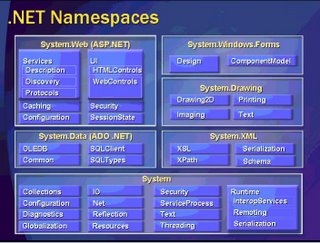First Step: Pass through some C# tutorials with ascending degree of difficulty
Beginner
http://www.functionx.com/vcsharp/csharp/Lesson01.htm
http://www.devhood.com/training_modules/
http://www.csharp-station.com/tutorial.aspx
Advanced
http://csharpcomputing.com/Tutorials/TOC.htm
http://samples.gotdotnet.com/quickstart/
Pro
http://www.geocities.com/jeff_louie/OOP/oop.htm
Second Step: Get familiar with the dotnet-framework.
Code simple examples with the most important namespaces of the dotnet-framework.

Overview of the most important .NET Framework namespaces.
Third Step: Continuous reading of .NET coding articles
Here are some good sources:
http://www.codeproject.com/csharp/
http://www.codersource.net/codersource_dot_net.html
http://www.developerfusion.co.uk/csharp
http://www.csharphelp.com/
http://www.example-code.com/csharp/default.asp
http://www.codeguru.com/csharp/
http://www.mastercsharp.com/
Most important: MSDN Patterns & Practices Site!
Fourth Step: Get familiar with the new concepts of .NET Framework 2.0
Windows Presentation Foundation (WPF)
Windows Workflow Foundation (WWF)
Windows Communication Foundation (WCF)
So this is the C#-roadmap for for the next time. Of course this studies will be accompanied by the other knowledge-areas (Architect, Engineer and Project-Management). So I am not afraid not to know what to do in the next time.
Concerning Java - at the moment I am concentrating my efforts on C# and not on refreshing my Java knowledge. This is a personal decision that I set my personal focal point there. In my opinion, a software architect should know both languages. I just decided to start with C#.
No comments:
Post a Comment